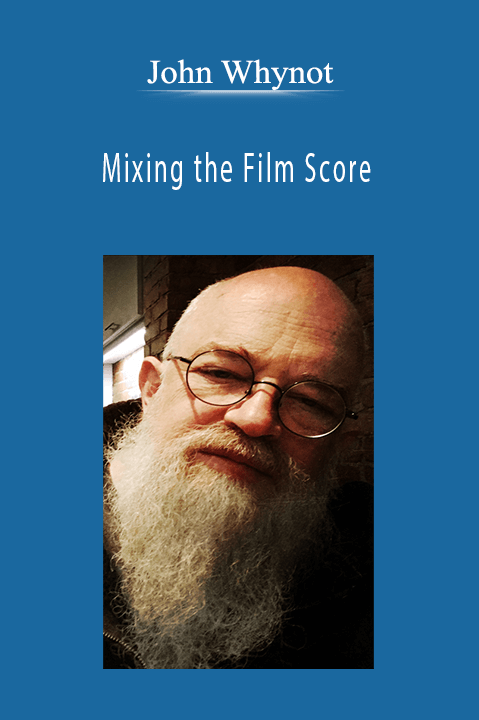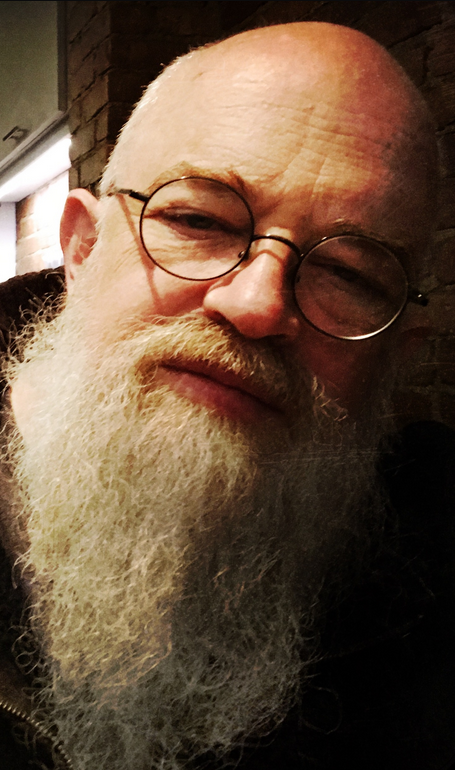John Whynot – Mixing the Film Score
This course takes your mixing skills to the next level and includes a thorough exploration of stereo, surround, and immersive mixing, and delivery-to-client specifications. We will explore advanced reverb applications, as well as techniques to mix different sample libraries with live recordings. You will do extensive listening to prepare your aural analysis skills prior to implementing these techniques in your own mixes. We will also address when, why, and how to engage a professional mix engineer. You will learn how to “mix to the dub” and develop sensitivity to the ultimate needs of the final film mix.
By the end of the course, you will be able to:
- Create stem mixes (submixes)
- Efficiently design and customize DAW templates for stem creation
- Listen critically to film music mixes
- Use reverb, delay, and other processing effectively for various mixing situations
- Effectively mix multiple different sample libraries with live recordings
- Deliver to specs, including 5.1 and other surround delivery formats
- Mix so that the music contributes optimally to the final film mix experience
Syllabus
Lesson 1 Mixing: A Brief History and “The Art”
Lesson 2 How to Mix: Sonic Metaphors
Lesson 3 EQ: A Surgical Pie-Knife
Lesson 4 You Are Hear: The Effect of Your Workspace on Your Mix
Lesson 5 EQ: Now It’s a Paintbrush
Lesson 6 The Orchestra: Live, Sampled, or Both?
Lesson 7 Levels, Metering, and Automation
Lesson 8 Power and Energy: Compression, Limiting, and Saturation
Lesson 9 Reverb and Ambience: Impressionism vs. Realism
Lesson 10 Mixing to Stems
Lesson 11 Tech Redux, Delivery, and QC
Lesson 12 Upgrades, Expansion, and Into Surround
Requirements
Proof of a Bachelor’s Degree
Prerequisites and Course-Specific Requirements
Completion of OCOMP-507: Orchestral Mockups in Film Scoring or equivalent knowledge and experience is required.
Graduate level skill and understanding of film scoring is required. Students should be able to demonstrate advanced facility in their DAW of choice (Pro Tools, Cubase Pro, Logic Pro, or Digital Performer). If not using Pro Tools as your primary DAW, a working knowledge of Pro Tools is also essential.
Take the Mixing the Film Score self-assessment to determine your level.
Film Scoring Rig:
- Avid Pro Tools 2018.12 or higher is a hard requirement for this course (Pro Tools | Ultimate is recommended).
- One of the following DAWs is recommended in addition to Pro Tools:
- Steinberg Cubase Pro
- Apple Logic Pro
- This course requires studio monitors. In addition, studio headphones are highly recommended.
- A subscription to the streaming service TIDAL
Instructors
Author & Instructor
Grammy-winner John Whynot’s first major feature-film score mixing credit was The Last of the Mohicans, which won the 1993 Academy Award for sound. He has since mixed and programmed dozens of feature film scores, including Austin Powers I and II, Ronin, Stigmata, and The Breadwinner.
A composer and songwriter, his original compositions have appeared in feature films, television movies, national advertising and video games. He has extensive experience in all musical idioms and styles.
His Grammy- and Juno-award-winning career as a producer/engineer includes projects with Dave Matthews, Lucinda Williams, Blue Rodeo, Kathleen Edwards, Loreena McKennitt and Colin James
A multi-instrumentalist, he has appeared on stage or television with Bruce Cockburn, The Band, Rick Danko, Garth Hudson, Doug Sahm, Amos Garrett, Kathleen Edwards, Carole Pope, Corey Hart, Blackie & the Rodeo Kings
In his hometown of Toronto, where he was constantly seen on stage playing in literally dozens of bands (guitar, keyboards, saxophones), John frequently found himself in the producer’s chair in the studio. He was driven by a fascination with recording and an increasingly obvious talent for working the boards.
His move to Los Angeles in 1989 spurred a shift into film scoring. Within a short time he was brought into a project with composer Trevor Jones, who immediately hired him to program synths and mix the score to The Last of the Mohicans. Being a mixer who can read scores and relate to musicians as a musician has kept him working in film music ever since. He has also mixed and/or programmed scores for George S. Clinton, Elia Cmiral, Andrew Gross, Jeff Danna, Mychael Danna, John Debney and others.
In 2014, John accepted an offer to become an Associate Professor at Berklee College of Music in its vaunted Music Production and Engineering Department. He is now dividing his time between teaching and mixing in Boston and producing and mixing in Los Angeles.
Recently, John has been mixing album projects for B3-Berlin, Blackie & the Rodeo Kings, JW JONES, mixing the scores to the Amazon series The Last Tycoon and the Netflix mini-series Alias Grace and the feature films The Breadwinner and The Man Who Invented Christmas for Mychael Danna & Jeff Danna. He is also creating a new Minor in Audio Post Production at Berklee College of Music.
What’s Next?
When taken for credit, Mixing the Film Score can be applied towards these associated programs:
Associated Certificate Program
- Film Scoring Technology Graduate Certificate
Associated Degree Major
- Master’s Degree in Film Scoring
Digital Download John Whynot – Mixing the Film Score at offimc.click Now!
Delivery Information
- Upon ordering the product, a delivery email with download instructions will be sent immediately to you so that you may download your files. If you log in (or create an account) prior to purchase you will also be able to access your downloads from your account dashboard.
- It is a digital download, so please download the order items and save them to your hard drive. In case the link is broken for any reason, please contact us and we will resend the new download link to you.
- If you don't receive the download link, please don’t worry about that. We will update and notify you as soon as possible from 8:00 AM – 8:00 PM (UTC+8).
- Please Contact Us if there are any further questions or concerns you may have. We are always happy to assist!








Reviews
There are no reviews yet.